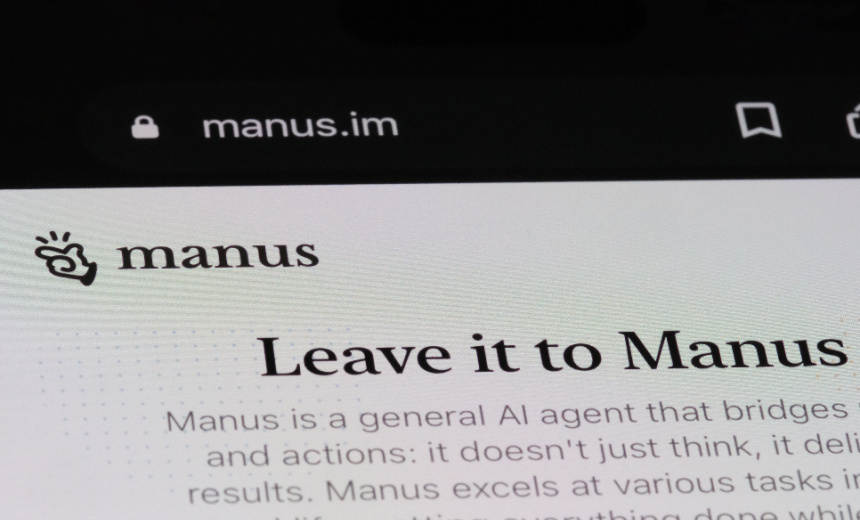Chinese AI Developer Says Model Is Potentially a ‘Glimpse Into AGI’

The latest artificial intelligence breakthrough originating in China, which promises a revolution in automation, has arrived – if it lives up to the hype.
See Also: Real-Time Sanctions and Watchlist Screening: Transforming Compliance into Competitive Advantage
Billed as a “general agent that turns your thoughts into actions,” Chinese startup Monica claims its Manus agent can independently tackle complex tasks such as real estate scouting and stock analysis.
Manus stands out from traditional AI models like OpenAI’s ChatGPT and Google’s Gemini by operating autonomously. Instead of waiting for human prompts, Manus proactively executes workflows, conducting research, analyzing data and even building applications. It functions by orchestrating multiple sub-agents, akin to an executive overseeing a team, allowing it to complete multi-step tasks: Manus can sort through resumes and rank candidates for a job, compile real estate listings based on user preferences and perform correlation analyses of different stocks. Unlike standard chatbot interfaces and their text-based responses – Manus executes actions, from filling out forms to scraping the web for insights.
Manus creator describes the model more than “just another chatbot or workflow… It’s a completely autonomous agent.”
“We see it as the next paradigm of human-machine collaboration and potentially a glimpse into AGI,” Manus AI chief scientist Yichao Ji said in the video.
Company benchmarks claim Manus outperforms OpenAI’s Deep Research on AI evaluation framework for agentic tasks GAIA. But real-world tests paint a mixed picture. Some early users have described it as impressively fast and capable, but others report frustrating experiences with slow responses, factual errors and endless processing loops. Manus’s ability to cite sources is also inconsistent, raising concerns about reliability and transparency.
The excitement around Manus underscores growing interest in autonomous AI agents, or systems capable of working independently, reducing the need for human intervention. They could potentially transform industries, including finance, legal research, customer service and software development. OpenAI’s Operator and Deep Research offer similar web-browsing and task execution functionalities, while Anthropic’s Computer Use API enables AI-driven automation. Manus claims to go beyond these, providing a fully autonomous workflow execution model.
Comparisons to China’s DeepSeek, which made waves were quick to arrive. DeepSeek initially appeared to be an energy-efficient AI breakthrough, but security vulnerabilities and overblown claims tempered enthusiasm. Like DeepSeek, Manus has attracted intense speculation about China’s ability to compete with Silicon Valley in advanced AI development. But unlike DeepSeek, Manus has not yet developed its own foundational models, relying instead on external AI architectures.
“It looks like Manus AI presents itself as a Chinese company (with its team based in China) while maintaining a legal entity in Singapore,” said AI and privacy expert Luiza Jarovsky. “From a data protection perspective, the key questions are: Where are its servers located? Is there any corporate affiliation to China? Are there data transfers to China?”
So far, access to Manus is invite-only, with invite codes reportedly selling for thousands of dollars. The scarcity has prevented widespread testing but fueled plenty of speculation.
